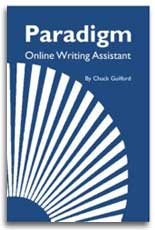English sentences are built upon the foundation of an independent base clause consisting of two parts, a subject and a predicate. This simple pattern may be expanded in three ways. First, subordinate modifiers may be added to one of the main elements or to the base clause as a whole. Second, words or phrases may be coordinated with existing elements. Third, you may sometimes want to substitute a word group for an individual word. Finally, you can often use subordination, coordination, and substitution together to expand a single base clause.
Activities
4.3 Write five simple sentences (S V/C) without modifiers. Exchange and compare them.
4.4 Add modifiers to the base elements of the sentences you received in Activity 4.3, return the sentences, and discuss them again.
4.5 Underline and label (S, V, or C) the main word clusters in each of the following sentences.
a. The maturing tadpole slowly grows legs.
b. Slow dancing is much more fun.
c. An elderly woman picked out a bright red hat.
d. The freshly lit match touched the pile of dry woodchips.
e. The clear water cooled her cheeks and forehead.
f. Small aspen leaves flickered and danced in the bright morning air.
g. Most team members brought their own gloves.
h. The swirling dust almost obscured the distant horizon. i. Some old cars get pretty good mileage.
j. That wily old carp wouldn't even consider my shiny new spinner.
4.6 Use modification, coordination, or substitution to expand each of the following sentences.
a. Donnie devoured his waffles.
b. The teachers played football.
c. Rain flooded my basement.
d. Those boys won the trophy.
e. Doris is a mechanic.
f. The horses ate hay.
g. Clouds spilled their rain.
h. The semi snapped a stop sign. i. Cowboys love horses.
j. The cheerleaders did handsprings.
4.7 Rewrite any three of the sentences you expanded for Activity 4.6, this time expanding them even further.




